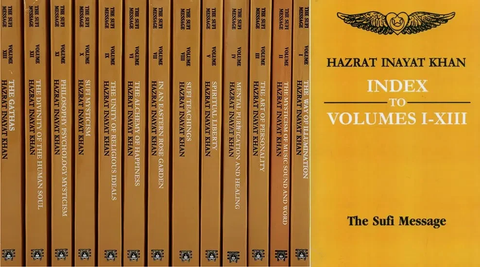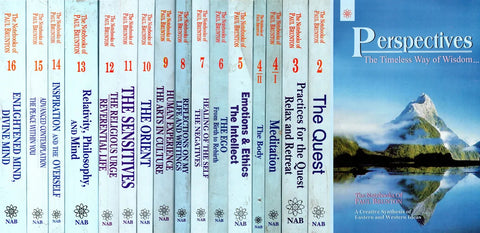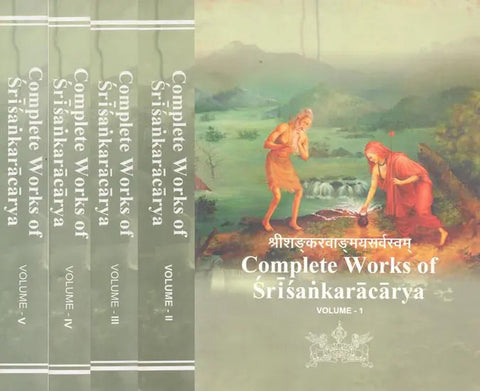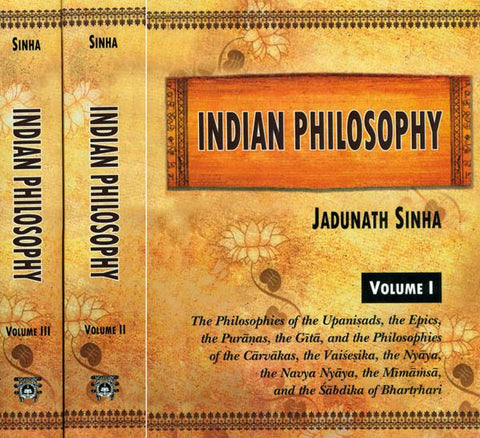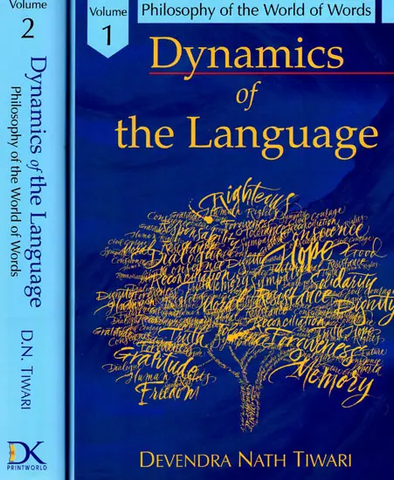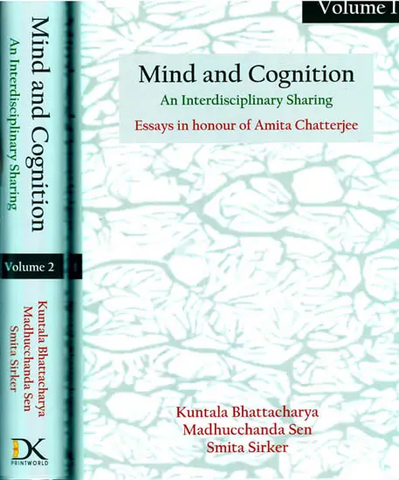Your cart is empty now.
The philosophy of Mahima Dharma, a religious tradition of Odisha, is centred around the concept of God as Sunya-Brahman, and is remarkable for its stance towards religion, man and society. Mahima Dharma, though very much a part of the Indian religio-philosophical tradition, boldly defies idolatry, meaningless rites, religious pomposities and social discrimination, based on varna dharma/jati. Bhima Bhoi, the chief protagonist of this dharma, presents a sunya-centric metaphysics and takes it to meaningful logical conclusion.
Bhima Bhoi, a well-known tribal poet of nineteenth-century Odisha, presents through his lyrical compositions rarefied concepts like Sunya-Brahman, identity between jiva and Brahman, the relation between brahmanda and pinda and bhakti as atmajnana. His words, choice of philosophical idea and style of presentation bear the stamp of his predecessors, Pancasakha and Caitanya Dasa.
This volume concisely deals with the varied aspects of Indian religio-philosophic tradition such as God as Sunya in other traditions, the genesis of Mahima Dharma and its approach and interpretation of Sunya-Brahman, the relationship between God and man, and the dissident stream of spirituality. It talks about the persona of Bhima Bhoi as a poet and a philosopher, and his contested status in the society; also the impact of other thought systems like Buddhism, classical Advaitism, Sanatana Dharma on Mahima Dharma.
Academic in nature, this book should propel the inquisitiveness of many a researcher on Indian religio-philosophic systems and students of philosophy and theological systems.
Tandra Patnaik (1947-2015), the author of Sabda: A Study of Bhartrhari’s Philosophy of Language and Sunya Purusa: Bauddha Vaisnavism of Orissa, combines in her the scholarship of both Indian and Western philosophy as well as the study of regional philosophical texts. Her passion for treading into the uncharted areas of philosophical literature finds outlet in the study of Bhartrhari’s theory of Kala (Time) as Sakti (Power).
A researcher for more than forty years, Dr Patnaik authored five books on Indian and Western philosophy, edited four volumes and wrote numerous research papers. She was a recipient of ICPR Senior Fellowship and UGC Emeritus Fellowship after her retirement in 2007. She was a nominated member of the Indian Council of Philosophical Research (ICPR) during 1995-98 and was nominated again as a member of the Governing Body of ICPR since 2013.
What attracted me to the philosophy of Mahima Dharma was its remarkable stance towards religion, man and society. Though a part of the Indian religio- philosophical tradition, the boldness with which it defies idolatry, meaningless rites, religious pomposities and above all, rejects the shameful practice of social discrimination on the basis of varna dharma/jati, leaves one mesmerized. When I poured into its literature composed by Bhima Bhoi, I realized that it has much more depth than I had imagined. Bhima Bhoi not only presents a sunya-centric metaphysics but does not hesitate to take it to its logical conclusion. Though the idea of God as sunya is not exactly an unknown idea in Indian philosophical tradition, one marks a certain amount of compromise as far as its affliation, to some sectarian God is concerned. It is either Siva or Visnu or the Buddhist deity Vajrasattva. But in case of Mahima Dharma there is no trace of compromise either in its attitude to God or to the society. What is likely to amaze us is that Bhima Bhoi, the chief protagonist of this dharma, was just an illiterate tribal young man who neither had access to the classical texts nor to the literature of the medieval sants of Odisha. Yet the ease with which he presents through his lyrical compositions very rarefied concepts like the idea of Sunya-Brahman, the idea of the identity between jiva and Brahman, or for that matter the relation between the cosmic body (brahmanda) and individual body (pinda), the concept bhakti as atmajnana leaves one awe-struck. It is a fact that Bhima Bhoi’s style of presentation, choice of philosophical ideas and words bear a clear stamp of his predecessors of Odisha, especially Pancasakha and Caitanya Dasa. Still it would be an injustice on our part to say that after almost a gap of more than two centuries he replicated those ideas. Probably, the sunya-centric philosophy and all the allied concepts had become a part of the collective psyche of the common mass of the soil. Bhima Bhoi perhaps starts from here and sails to its logical conclusion that any sunya-centric metaphysics in India, including the preceding Utkaliya Vaisnavism, could have reached. He does not present his ideas in a half-hearted manner and there is not an iota of conciliation at any step. Woking on the path-breaking philosophical ideas of Mahima Dharma, for me, was an exhilarating experience.
Throughout the book I have used “Odisha” and “Odia” instead of “Orissa” and “Oriya” since the rendering of the change of nomenclature was accepted by Government of Indian on 4 November 2011.
The work on the project was undertaken as a Senior Fellow of the Indian Council of Philosophical Research (ICPR). I am grateful to the Council for offering me the Fellowship. On this occasion I would like to fondly remember Avadhuta Nityananda Baba of Mahima Gadi, Dhenkanal and Avadhuta Nishakar Baba of Mahima Ashram, Bomikhal, Bhubaneswar for sharing their knowledge with me. I would like to express my heart-felt gratitude to Sri Sadananda Agarwal, the famous Mahima scholar and a great organizer, who offered me chance to spend time at Khaliapali Ashrama of Bhima Bhoi. I am equally indebted to my family members for encouraging me to edit and fine-tune the work. My sincere thanks to D.K. Printworld for readily accepting this work for publishing.
I. Dharma and Darsana: Paradoxes and Anomalies
The very title of this book may raise many eyebrows. I am likely to be assailed by the academic philosophers on two counts. First, can there be a conception of God who is of the nature of sunya (the word has been often translated as “void” or “emptiness”)? Second, can a subject matter called philosophy include the concept dharma within its fold? In this introductory note I would like to address these two questions. Surprisingly there are many existing anomalies, especially, regarding the second question, that needs to be sorted out before I handle the central theme of my book.
Many of my friends, even from the academic circle, have raised serious doubts about the possibility of the idea of God as sunya, even if sunya means not “void”, but the God as a formless, non-categorizable principle. They have often argued that this may be possible as a lofty speculation but it lacks practical applicability. I assure them that the idea of sunya as God is not so strange to out philosophical and religious tradition. Right from such orthodox Brahmanical traditions like Kashmir Saivism, Virasaivism and Odishan Vaisnavism to such non-Brahmanical schools like Tantric Buddhism have delineated God as Sunya. As far as the practicality of such a concept is concerned I can vouchsafe from my personal experience that there are still some religio-philosophical orders like Mahima Dharma which staunchly hold to the view that God can be nothing more than Sunya-Brahma-God without form and figure, even without a symbolic representation. They still stand under the open sky morning and evening and pray for the well-being of the whole humanity. I shall not dwell here longer on the issue since my work aims to unravel the philosophical structure of a dharma that truly adheres to the principle of God as sunya. So now I would like to address the second issue that is much more complicated. This is about the question of discussing the philosophy of a dharma. This may sound quite anomalous as we are given to believe that the word dharma is “God-centric”; so talking of the philosophy of a dharma is like putting a circle in a square hole. But I am convinced that both the terms “philosophy” and “dharma” are taken in most cases in the narrowest sense of the terms. Though academic scholars have filled pages on clarifying that dharma does not necessarily mean religion-their personal conviction that dharma is nothing more than religion (not even spirituality) is so overpowering that they do not want to touch anything that is remotely associated with the term as a subject matter of academic investigation. But if we adopt this logic, then we should not use the word dharma in case of Buddhism and Jainism, for there is no place for God in both the philosophical movements. If the very conception of God makes philosophy a dharma then any system of accredited philosophy that conceives of God as the highest reality should not have been called a darsana, by the same logic. If systems like Nyaya, Yoga and Visistadvaitavada are not identified as dharma but darsanas despite presupposing the existence of God, then would not it be unjust on our part to have reservations about appending the word darsana to such lofty philosophical ideas championed by the nirguna-panthis like Kabir, Lal Ded or Odishan Vaisnavas ansMahima-dharmis? None of them talks of God in the personal sense. All these so-called dharmic positions are founded on strong metaphysical principles like any accredited philosophical system of the Classical age. They too have their own views about the nature of reality, the nature of truth, the nature of moksa as well the relation between the phenomenal and transcendental reality. I have so far not come across any clear argument that could offer the rationale behind such anomalous attitude.
Is it because the powerful orthodox and elitist elements have felt threatened by any philosophical stream of thought that influenced the life of the ordinary people? For example, in the initial phases of Buddhism it was identified as dharma. No doubt during that phase the term dharma had not acquired a conspicuous religious connotation. May be because Buddha preached his thought in Pali language (which was the language of the common people) and common folks were attracted by the teachings of the Buddha, the orthodox section wanted to sideline this popular mode of doing philosophy by bracketing it as dharma, i.e. a “movement” or a distinct “way of life”. It is an irony that when Buddhism in later phases was subdivided into multiple systems and when the trend of composing their texts in the form of Karikas, Sutras and Bhasyas become a part of their writings they acquired the status of darsana, for example, Madhyamika darsana or Yogacara darsana. So it seems that the elitist dogma that Sanskrit is the only language of doing philosophy (being the language of gods or devabhasa) and writing in the form of Karikas and Sutras is the only parameter of judging a philosophical treatise continued unabated. Anything that deviated from the practice was segregated as the “other”.
It remains a hard fact that academic philosophers show little interest in investigating the continuation of the Indian philosophical tradition beyond the Classical age. Though philosophical ideas came pouring in from different parts of India in the form of distinct regional movements the post-Classical philosophy in India continues to remain in oblivion. By “post-Classical” I mean the philosophical developments after thirteenth century CE. The reason for such hesitation is not very difficult to trace. Such philosophical traditions are most often set aside as panthas (sects) or dharma (as in case of Sikh Dharma and Mahima Dharma). During the post-Classical period the Indian philosophical tradition (which the post-colonial scholars prefer to brand as “Bhakti movement”) found expression more in the form of movements than systems of thought. The pure intellectual speculation of classical tradition like Samkhya or Vedanta was replaced by lived philosophies closer to society and life. The new way of doing philosophy, may be due to the reason stated above, has been put under the label dharma. The word darsana is seldom used. For example, instead of Vaisnava darsana the word Vaisnava Dharma is preferred. Does that mean that Vaisnavism was not based on any philosophical structure? I do not think so, for, the philosophical foundation of Vaisnavism was laid by post-Sankara Vedantins. What is the rationale behind such a change of nomenclature is a matter of serious investigation.
Is Bhakti Movement God-centric ?
One of the most important reasons for the injustice meted out to the so-called Santhic or Dharmic tradition may lie with word bhakti which is often associated with the philosophical movements of the post-Classical phase. The thinkers of this period never identified themselves as bhakti theorists. It was a label tagged to it during the colonial and post-colonial period. Due to some unfathomable reason all these movements are brought under the omnibus bhakti. Unfortunately, the word bhakti is so intimately associated with religion that the academic philosophers tend to think that the post-Classical philosophy as a whole is nothing more than dogmatic religious outpourings. Yet these same scholars do not mind appending the word darsana to the theories of later Vedantic philosophies advanced by Vallabha, Madhva or Nimbarka. All these systems of thought dwell in detail on the concept of bhakti. The only visible difference between the analysis of bhakti in the post-Classical phase and the later Vedantins is that all these all these thinkers were acaryas (drawn from the community of brahmanas) and they wrote in the form of Bhasyas. No modern scholars would dare to set their philosophy aside as a form of Bhakti movement. It is unfortunate that the scholars seldom delve into the dynamics of the word bhakti. It is almost taken for granted that the word bhakti connotes a single meaning , viz. Emotional attachment to a personalized Supreme Being. It is seldom noted that in Indian tradition in certain cases the concept of bhakti has been very significantly used without the postulation of a personal God. It may also stand for a path of knowledge that helps one to understand one’s inner potentialities. For example, Sankaracarya defines bhakti as an investigation into one’s own being (sva svarupanusandhana). In the post-Classical phase there prevailed many systems of thought that interpreted bhakti in consonance with Sankara’s definition of the term, i.e. as a form of direct knowledge or else a form of realization of the highest truth through yogic methods. So the inclusion of the concept of bhakti does not necessarily prohibit the new systems of the post-Classical phase to have the status of darsana. Rather the theories advanced by this group of post-Classical philosophers helped the common and ordinary people to have a taste of spirituality that was so far denied to them by the dominant and powerful section of the society.
| Prologue | vii | |
| Preface | ix | |
| 1 | Introduction | 1 |
| I. | Dhama and Darsana: Paradoxes and Anomalies | 1 |
| Is Bhakti Movement God-centric? | 4 | |
| The Philosopher vis-a-vis the Mystic | 5 | |
| The Tradition and Its Critique | 7 | |
| II. | Mahima Dharma: An Overview | 10 |
| Part I | ||
| 2 | God as Sunya: Other Traditions | 20 |
| The Genesis of the Concept of Sunya | 20 | |
| The Spirit of Assimilation | 24 | |
| God as Sunya in Saivism | 25 | |
| Kashmir Saivism | 25 | |
| Virasaivism | 28 | |
| Natha Dharma | 30 | |
| God as Sunya in Buddhism | 33 | |
| Dharma Sect of Bengal | 36 | |
| Vaisnavism of Odisha (Utkaliya Vaisnavism) | 38 | |
| Part II | ||
| 3 | The Genesis of Mahima Dharma | 46 |
| The Backdrop | 47 | |
| Mahima Svami | 50 | |
| Is Mahima Dharma Inspired by Christianity? | 54 | |
| Bhima Bhoi: The Vanguard Mahima Literature | 56 | |
| The Tenets of Mahima Dharma | 60 | |
| 4 | God as Sunya: Mahima Dharma | 63 |
| Alekha and Mahima | 66 | |
| God as Sunya | 69 | |
| The Nature of Sunya-Brahman/Purusa | 76 | |
| Monism or Monotheism? | 79 | |
| 5 | Sunya-Brahman, Jagat and Jiva | 86 |
| Sunya-Brahman and Jagat | 86 | |
| Sunya-Brahman and Jivatman | 93 | |
| The Body as the Seat of Divinity | 95 | |
| Layers of Sunya | 99 | |
| 6 | Man and God | 101 |
| Bhakti: The Two Dimensions | 102 | |
| Jnana and Bhakti: The New Perpective | 105 | |
| The Mahima Concept of Jnana-Bhakti | 106 | |
| The Concept of Niskama-Bhakti: The Progress from Morality to Spirituality | 110 | |
| Niskama-Bhakti and Human Action | 113 | |
| The Concept of Guru | 115 | |
| 7 | The Dissident Stream of Sprituality | 117 |
| The Dissident Stream of Spirituality | 118 | |
| Dharma and the Children of Lesser God | 119 | |
| Bhakti as a Form of Non-Conformism | 123 | |
| Mahima Dharma and the Voice of Dissent | 129 | |
| 8 | God as Sunya and Universalism | 139 |
| Samata | 140 | |
| Karuna | 145 | |
| Epilogue | 148 | |
| Bhima Bhoi: A Poet or a Philosopher? | 148 | |
| Bhima Bhoi: The Contested Status | 152 | |
| Appendix: Mahima Dharma: Buddhism or Classical Advaitism? | 157 | |
| Is Mahima Dharma a Form of Buddhism? | 157 | |
| Is Mahima Dharma a Part of Sanatana Dharma? | 161 | |
| Mahima Dharma : The Indegenous Product of the Soil | 167 | |
| Bibliography | 169 | |
| Index | 175 |
Delivery and Shipping Policy
- INTERNATIONAL SHIPPING
- Rs.1000-1100/kg
- ESTD. Delivery Time: 2-3 weeks (depending on location)
- Bubble Wrapped with Extra Padding
- NATIONAL SHIPPING
- NCR: Rs. 30/half kg
- Standard: Rs. 80/half kg
- Express shipments also available on Request
- ESTD. Delivery Time: Ranging from 1-4 days up to 7 business days (Depending on your choice of Delivery)
- TRACKING
- All orders; national or international, will be provided with a Tracking ID to check the status of their respective orders
- Depending on the Shipping Service, Tracking ID may be used on their respective tracking portals
Frequently Asked Questions (FAQs)
Domestic Shipping: 3-4 Days (after shipping)
International Shipping: 1-2 weeks (based on your location)
You will receive an email once your order has been shipped or you can email us if you didn't receive tracking details (info@mlbd.co.in)
Every book that we sell is the latest edition except all the rare books
Yes, we do provide free shipping, only on domestic orders (within India) above Rs.1500











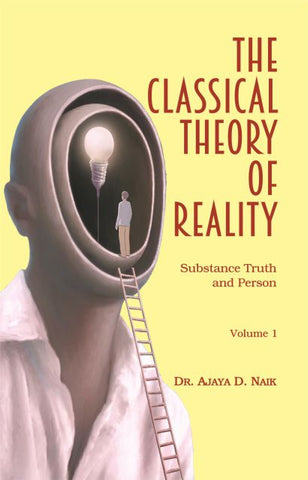
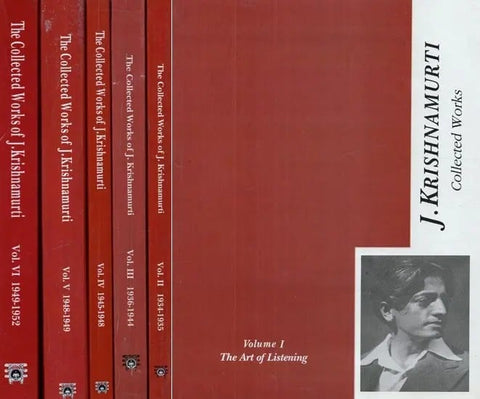

![A HISTORY OF INDIAN PHILOSOPHY [5 VOLUMES] by Surendranath Dasgupta](http://www.motilalbanarsidass.com/cdn/shop/products/HISTORYOFINDIANPHILOSOPHY_large.jpg?v=1675238163)
